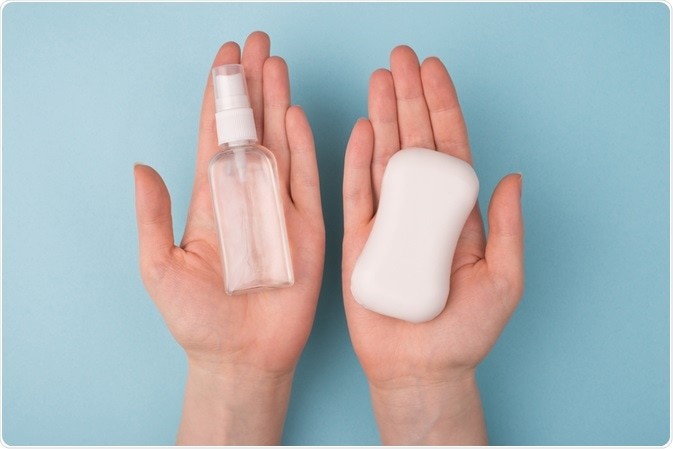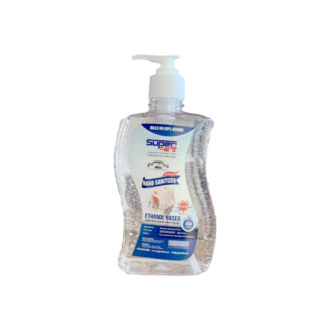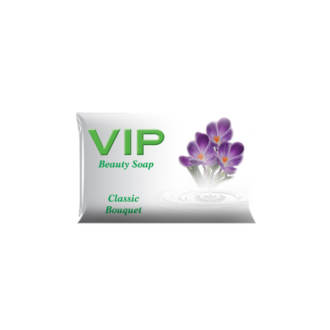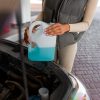- Empty cart.
- Continue Shopping
Infection Free Hands : Which is Best Soap or Hand Sanitizer

It is important to keep your hands clean in order to avoid getting sick and spreading germs to others. The majority of germs that cause severe healthcare infections are spread through the actions of people. With the outbreak of Coronavirus worldwide, it is most important to maintain your hands clean so that the virus does not contract or spread to others.
What is Hand Hygiene?
Hand hygiene is a method of hand cleaning that significantly decreases the presence of pathogens (harmful microorganisms) on the hands. Hand hygiene is a key component of reducing the risk of infection transmission among patients and health-care workers.
How to Keep your Hands Clean?
You can avoid infectious diseases with some of the simple tricks stated below:
Handwashing
Hands should be washed properly for about 20 seconds using eco friendly cleaning products such as soap and warm water. Hand washing is the only major way to prevent the transmission of diseases from one person to the next. While hand soaps cannot kill all viruses and bacteria, careful washing of the hand can help to reduce microorganisms and maintain many thresholds of infection.
Cleaning hands with eco friendly cleaning products on a regular basis, in addition to when they appear visibly dirty, can remove high levels of bacteria and viruses from the skin.
To ensure that your hands are properly cleaned follow the steps below to get started:
- Wet your hands with clean water and put soap on.
- Lather soap between your fingers and under your nails, on the back of your hands.
- Scrub for at least 20 seconds or more.
- Under clean running water, rinse off the soap.
- Dry your hand with a clean towel.
Although your hands may be clean after being washed with soap and water, take the following precautions when drying them:
- Unless you clean and dry your hands on a regular basis, avoid using sponges or non-disposable cleaning cloths to wipe your hands.
- Use a special hand towel instead of a regular one. In a public restroom, always use paper towels and hand dryers.
- When washing the hands of a group of children, do not use a single wet towel.
Using Hand Sanitizer
The best method for removing germs is to wash hands with soap and water. But, if there is no soap and water available, you can use alcohol-based hand sanitizers that contain at least 60% of alcohol. By looking into the product label, and you can be reassured if the sanitizer contains a minimum of 60% alcohol.
Hand sanitizers can rapidly decrease the number of germs on the hands.
How to Use Hand Sanitizer?
- Put on your hands a few amounts of sanitizer.
- Rub your hands together, making sure both hands are sanitized, including the area under your nails.
- Keep going for approximately 15 to 20 seconds or keep your hands dry.
Make “hands-off” habits a part of your daily routine
According to experts, we touch our faces about 25 times per hour on average. Try keeping your hands away from your face on a regular basis. Grab a tissue first before wiping your eyes or rubbing your nose. Coughing or sneezing into your upper arm or the crook of your elbow is also something you are probably familiar with. It was recommended earlier that people use their hands to cover coughs and sneezes. This practice has led to more germs spreading. This practice resulted in the spread of more germs. Coughing or sneezing into one’s hand and then touching food, money, or other people is a recipe for disease.
A typical sneeze can travel at speeds of up to 100 miles per hour and release a slew of germs into the air, your habit of corralling your sneezes can go a long way toward keeping everyone around you healthier.
Carry wipes or hand sanitizer with you when you are out in public so if you will not be able to wash your hands with water and soap you can use them. Use a towelette to wipe down your cart handle if a store makes them available at the entrance. Also, keep a pack of wipes and a disinfectant on hand.
Advantages of Using Soap
Handwashing with health and hygiene products such as soap and water has always been a good precaution to take in order to prevent bacteria from growing and spreading illnesses. Some people underestimate the importance of washing their hands with soap and water before and after meals. Many people’s health, particularly children’s, is being harmed by a lack of understanding of how and why handwashing with eco friendly cleaning products is important.
Contaminated hands can spread a wide range of deadly diseases from one person to the next. Chlamydia, Hepatitis A, Influenza, and Salmonella are only a few infections caused by a lack of awareness, which can be alleviated or limited to some extent by proper handwashing at the appropriate times.
Soap is good for cleaning when it comes to washing your hands since soap surfactants raise soil and skin microbial when people used to scrub their hands thoroughly using soap to remove germs any further.
When a surfactant is added to a liquid, it lowers the surface tension. The liquid’s capacity to propagate and wet increases as the surface tension increases.
The friction produced by scrubbing your hands together and the lather created by wetting soap work together to remove both visible and invisible contaminants.
Advantages of Using Hand Sanitizer
Hand sanitizer has been widely used for over a decade. It may have significant advantages.
In a study, ethanol-based hand disinfectants are found to be significantly more effective than handwashing with soap and water.
Hand sanitizers were developed to be used after washing hands or when soap and water are unavailable. They are alcohol-based gels that kill germs on your skin. Alcohol kills microscopic organisms and viruses quickly and effectively. Because alcohol can be dried to the skin, most hand sanitizers also include a lotion to prevent skin irritation and dryness.
It is critical to limit your exposure to other people’s germs, especially during flu season with eco friendly cleaning products. You can minimize your chances of getting sick by sanitizing your hands several times throughout the day. Even a quick trip to a friend’s home or the store will expose you to germs that can cause a cold, the flu, or other diseases, so it’s critical to keep your hands as clean as possible.
Non-alcohol hand sanitizers can significantly improve the surface of your hands’ skin. Emollients in some hand sanitizers soften your skin, giving you smoother and more appealing hands. You will notice a difference in the way your skin feels and looks after using this product. Avoid using alcohol-based hand sanitizers during pandemics like COVID-19 or flu seasons because they remove the skin’s natural oils and cause it to crack, creating an entry point for microorganisms.
Which Approach is Better at Preventing Virus Transmission- Soap or Hand Sanitizer?
Handwashing with soap and water is recommended as the first line of defense against disease transmission. Handwashing with soap often removes dead microbes and viral cells from the hands, which are then washed down the drain. This lowers the risk of infection from face-to-face contact, as well as the risk of cross-contamination of surfaces.
Handwashing reduces all types of infectious pathogens and removes potentially harmful chemicals from the hands, such as pesticides. Germs are killed by hand sanitizer, but they remain on the hands. Certain viruses and bacteria are also less resistant to sanitizer.
When handwashing facilities are either inaccessible or inconvenient to access, hand sanitizer plays an important role in preventing virus transmission. As a result, alcohol-based hand sanitizers are widely used in healthcare settings.
The hand sanitizer provides a convenient way to clean your hands and kill germs in public places like supermarkets to prevent virus transmissions, such as by touching shopping carts and food packages.
Effective hand washing depends on access to clean running water supplies, and therefore hand sanitizers with limited water supplies can be a valuable tool for disease prevention.
The Technique is Crucial Regardless of Which Method you Use
You are better off using nothing but soap and water or a hand sanitizer if you are not following the proper procedures. How hands are washed is more important than the type of soap used.
During handwashing, it is vital to scrub the hands with soap for 20 seconds because this allows the soap enough time to dissolve the virus’s membrane. It is also important that sufficient soap is needed to make a lather thick enough to cover both hands full.
Hand sanitizer should be thoroughly rubbed in until the hands are dry, and again at least 20 seconds should be taken. A common mistake is that the dispensers tend to release too little in a single pump, with very little sanitizer. At the very least, a coin-sized amount of hand sanitizer is recommended for use to cover the hands.
Hygiene For All offers a large selection of cleaning supplies online, including hand sanitizers, from more than 20 different brands at low wholesale prices. We are a leading supplier of hand sanitizer in Dubai. Our Hand Sanitizer is a liquid formula that helps to reduce infectious agents on the hands. In most cases in the healthcare setting, alcohol-based formulations are preferable to hand washing with soap and water. It kills microorganisms more effectively and is more tolerable than soap and water. Our customers can get custom hand sanitizers for their own product line thanks to our impressive research and development team; private label and custom formulations are available.
Hygiene For All was founded with the goal of becoming a leading national healthcare company that improves people’s quality of life. Hygiene For All’s mission is to provide standardized and studied eco friendly cleaning products. We have a solid QMS system in place that applies Total Quality Management across the globe. Our unwavering focus on quality, hygiene, traditional values, and cutting-edge technology, combined with ongoing unit upgrades and adherence to high ethical standards, has earned us a leading position in the healthcare industry.









